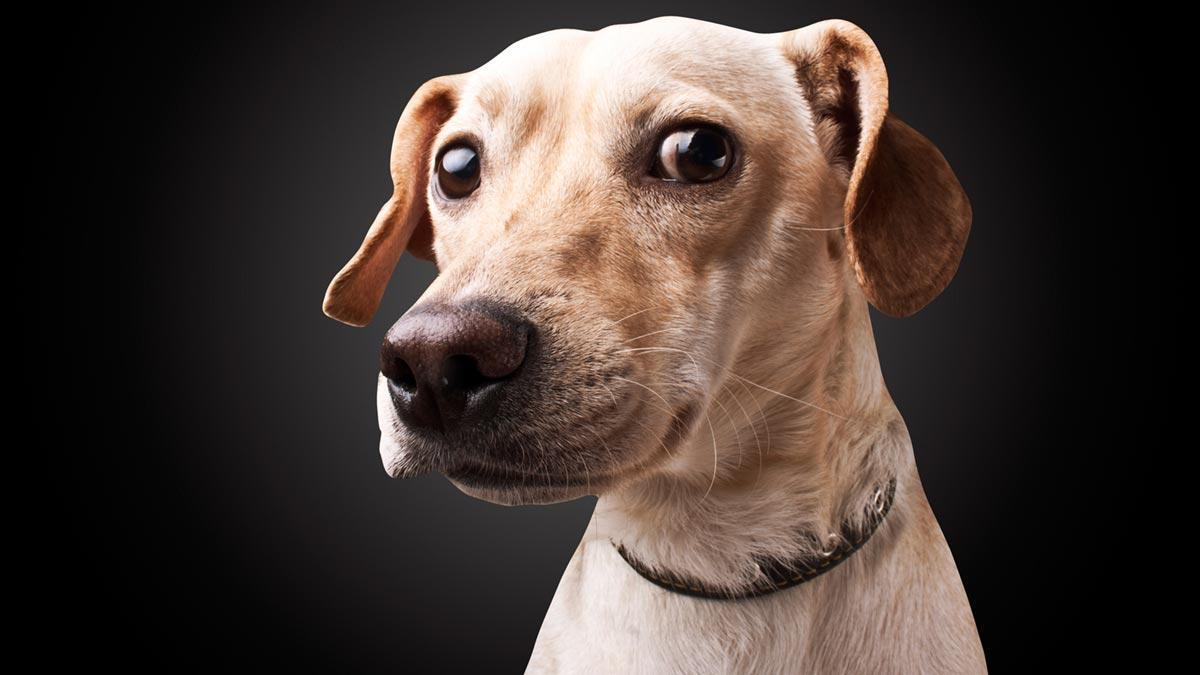
At Phoenix Veterinary Center, we are committed to providing you with the best possible care for your beloved pets. Canine parvovirus, or simply "parvo," is a highly contagious and potentially life-threatening viral infection that can affect dogs, especially puppies and unvaccinated adult dogs. It's essential for pet parents to be well-informed about this virus, its stages, treatment options, and preventive measures. In this blog post, we will explore the various aspects of canine parvovirus while focusing on how our team at Phoenix Veterinary Center can help you and your furry companions.
The mission at Phoenix Veterinary Center is to provide exceptional care for your four-legged companions. We understand the concerns and anxieties that come with owning a pet, especially when the health of your furry friend is at stake. One of the most dreaded threats to dogs, both young and old, is canine parvovirus. This highly contagious disease can wreak havoc on your beloved canine, and it's essential for you to be well-informed about its implications and prevention.
Understanding Canine Parvovirus
Canine parvovirus, or parvo, is a formidable foe that can strike a dog without warning. It's a virus that targets the most rapidly dividing cells in the body, including those found in the bone marrow, resulting in a significant drop in the white blood cell count. The consequences can be dire, with severe illness and even death in some cases. This virus has an incubation time during which it silently multiplies within an infected dog's body, making early detection and intervention paramount. Puppies are particularly vulnerable, but parvo can affect dogs of all ages, making it a concern for pet parents throughout their canine companion's life. Fortunately, there's positive news – the canine parvovirus vaccine is a powerful tool in preventing this devastating disease, offering protection from the very first stages of a pup's life. Let us guide you through the stages, treatment options, and, most importantly, the steps you can take to safeguard your furry family member with the parvovirus vaccine.
The Basics of Canine Parvovirus
Understanding the incubation period of canine parvovirus is crucial for pup owners. After exposure to the virus, there is a period of time when the virus silently multiplies within the dog's body before symptoms become evident. This incubation period is typically around 3 to 7 days, during which the virus is highly contagious, even before any signs of illness appear. Young puppies, in particular, are at heightened risk during this stage, as they are often exposed to the virus shortly after birth, especially if the mother dog is unvaccinated or has not developed sufficient immunity. It's essential for breeders and dog owners to prioritize proper vaccination protocols to protect these vulnerable young puppies from the outset.
The Role of Diagnostic Tests
At Phoenix Veterinary Hospital, we employ advanced diagnostic tests to swiftly and accurately detect the presence of canine parvovirus in your pet. These tests allow us to provide timely parvo treatment and minimize the impact of the disease on your furry friend. It's worth noting that canine parvovirus shares significant similarities with the feline panleukopenia virus, a related and equally contagious disease in cats. This underscores the importance of pup owners being vigilant and proactive in protecting their animals against contagious diseases. Through regular veterinary visits, vaccinations, and preventative measures, we can work together to ensure your pets remain healthy and free from the threat of canine parvovirus type 2.
Here are some basics of CPV:
What is Canine Parvovirus?
Canine parvovirus is a highly contagious virus that primarily targets dogs, particularly young puppies and unvaccinated adult dogs. It shares a close relationship with FPV and exhibits similar effects on a dog's body.
One of the most heartbreaking aspects of canine parvovirus is its ability to strike down young puppies with particular ferocity. These vulnerable and unvaccinated puppies are often the hardest hit by the virus. Canine parvovirus has an uncanny ability to rapidly replicate within a young puppy's body, targeting the dog's rapidly dividing cells, including those in the intestinal tract and bone marrow. As a result, it can lead to severe disease in these young, defenseless animals. This is why parvo vaccination protocols are initiated in puppies as early as six to eight weeks of age. These vaccinations provide crucial early protection against this deadly virus, helping young puppies build immunity and reduce their susceptibility to infection.
How is Parvo Transmitted?
Parvo spreads through direct or indirect contact with the feces of an infected dog, making dogs that haven't been vaccinated, especially those frequenting places like dog parks, more susceptible to the virus.
The Stages of Canine Parvovirus in Dogs
Understanding the stages of parvo in dogs is essential for early detection and timely intervention. The virus affects the most rapidly dividing cells in a dog's body, including those in the marrow of their bones and GI tract.
Stage 1: Initial Infection
During this stage, the virus enters the dog's body and targets rapidly dividing cells in the GI tract. Dogs typically exhibit symptoms such as a high fever, severe diarrhea, abdominal pain, and a decrease in white blood cell count.
Stage 2: Severe Illness
As the infection progresses, diarrhea continues, leading to significant fluid loss and electrolyte imbalances. Dogs may become dehydrated and weak.
Stage 3: Septic Shock
In severe cases, parvo can lead to septic shock, a life-threatening condition where the dog's immune system is compromised. The virus affects other organs, potentially resulting in multiple organ failure.
Recovery Time And Supportive Care
The time it takes for a dog with parvo varies based on the severity of the infection. At Phoenix Veterinary Center, we offer comprehensive care, including intravenous fluids, antibiotics to prevent secondary infections, and continuous monitoring of vital signs, such as heart rate, to aid in your pet's recovery.
Diagnosis and Treatment
Early diagnosis is critical for effective parvo treatment. At our veterinary hospital, we use enzyme-linked immunosorbent assays (ELISA) to detect the virus in your dog's feces. Once diagnosed, our team will provide comprehensive treatment, which may include hospitalization, intravenous fluids, medications, and isolation to prevent further transmission.
Prevention and the Parvo Vaccine
The Role Of Parvo Vaccination
Understanding how canine parvovirus operates within an infected pup's body underscores the importance of parvo vaccination. The vaccine is specifically designed to stimulate the dog's immune system, preparing it to recognize and combat the virus effectively. By introducing a small, harmless portion of the virus into the dog's system, the vaccine prompts the production of antibodies that can neutralize the virus if the dog ever encounters it in the future. This is a crucial part of building immunity and ensuring that your pet's body is prepared to fend off the virus should they come into contact with it. The goal of parvo vaccination is not only to protect the individual dog but also to contribute to the broader community's immunity, reducing the overall prevalence of the disease and safeguarding the health of unvaccinated puppies and dogs alike.
Preventing parvo is more manageable and less distressing than treating an infected dog. The parvo vaccine is a highly effective way to shield your pet from this debilitating virus. Puppies should receive a series of vaccinations starting at approximately six to eight weeks of age, with booster shots as recommended by our experienced veterinarians.
Protecting Older Dogs
While puppies are at higher risk, older doggos can also contract parvo, especially if they are unvaccinated or have weakened immune systems. Regular vaccinations and practicing good hygiene are essential for dogs of all ages.
While canine parvovirus is highly contagious and potentially life-threatening, the good news is that with prompt veterinary care, many dogs can survive and lead healthy lives. At Phoenix Veterinary Center, we emphasize the importance of staying informed and taking proactive steps to protect your furry companions. By prioritizing preventive measures, such as vaccination and good hygiene, pet owners can play a vital role in ensuring the well-being of their beloved dogs.
Canine parvovirus is a highly contagious and dangerous disease that can affect dogs of all ages, with puppies and unvaccinated dogs being the most vulnerable. Understanding the stages of the virus, seeking timely veterinary care, and prioritizing preventive measures are crucial steps in safeguarding your pets. At Phoenix Veterinary Center, we are here to support you every step of the way in keeping your furry family members healthy and happy.
Don't wait until it's too late to safeguard your furry friend from the threat of canine parvovirus. At Phoenix Veterinary Center, we're here to guide you through the steps needed to ensure your pet's health and happiness. Whether it's scheduling a parvo vaccination, discussing preventive measures, or seeking early diagnostic tests, our dedicated team is ready to provide the care and expertise your pet deserves.
Give Your Pet The Best Chance At A Healthy, Parvo-Free Life!
Your pet's well-being is our top priority, and we're committed to helping you make informed decisions for their health. Reach out to Phoenix Veterinary Center today at (602) 559-5500, and together, we'll ensure a bright and parvo-free future for your beloved companion. Don't delay—act now because their health depends on it!



